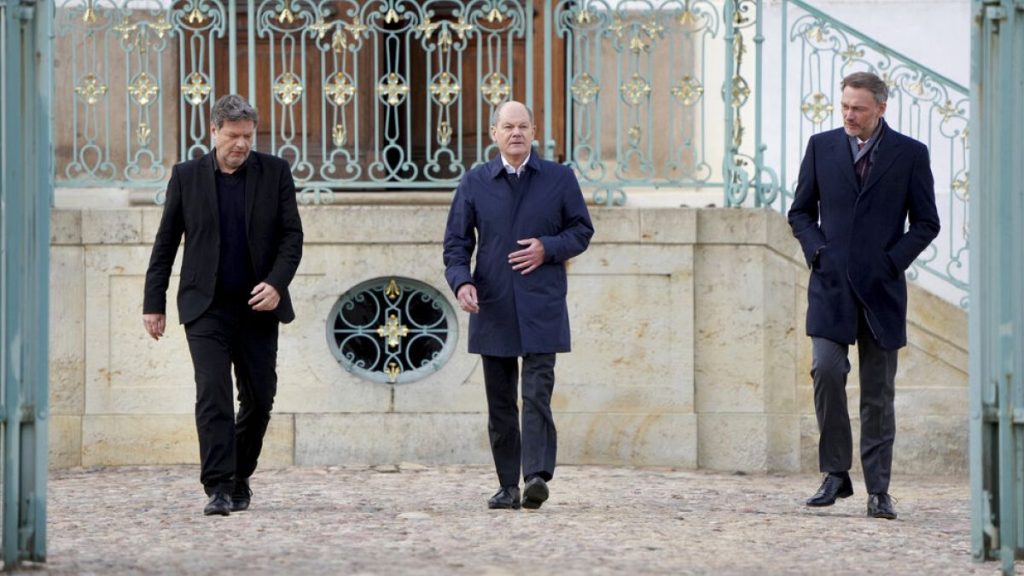German Chancellor Olaf Scholz has faced criticism for not inviting his finance and economy ministers to a meeting with business and trade union representatives in Berlin, leading to accusations of using the summit as a launchpad for his election campaign. The absence of Finance Minister Christian Lindner and Economics Minister Robert Habeck from the industry summit has sparked controversy, with critics accusing Scholz of shutting out other parties and going into campaign mode. While Social Democratic Party leader Saskia Esken defended Scholz’s actions as normal for a chancellor in a crisis situation, conservative newspaper Die Welt reported that Lindner would have preferred to be part of the event. In response, Lindner held his own meeting with small and medium-sized enterprises, emphasizing the government’s compliance with the German debt brake and the need for public investment in light of the economic crisis.
Amidst the controversy, Habeck, a likely Green candidate for chancellor, presented his economic analysis in response to Scholz’s summit, focusing on macroeconomic policy, interest rates, and fiscal measures. He advocated for billions of euros of public investment to address Germany’s economic challenges. IMF Europe chief Alfred Kammer highlighted Europe’s growth problems compared to the US, citing lower productivity, an annual decline in the labor force, bureaucratic obstacles, and a lack of a true single market. While the German government’s planned reduction in bureaucracy has been criticized by employers’ associations, Kammer stressed the necessity of structural reforms, including increased investment in infrastructure. Scholz’s recent statement that “we need to get off the theatre stage” may explain the lack of a press conference after the summit, suggesting a shift in focus towards addressing economic challenges.
The ongoing debate surrounding Scholz’s utilization of the industry summit as a platform for his election campaign reflects broader tensions among political parties and stakeholders in Germany. The exclusion of Lindner and Habeck from the summit has raised questions about transparency and inclusivity within the government, with critics pointing to the need for a collaborative approach to addressing economic issues. While Scholz’s defense of his actions as necessary in a crisis situation has garnered support from some quarters, others have raised concerns about the perceived political motivations behind the summit. The clash between different parties’ economic proposals and visions for Germany’s future underscores the complexity of the current economic landscape and the challenges facing policymakers in shaping effective responses.
As Germany grapples with economic uncertainty and the prospect of plant closures at companies like Volkswagen, the need for cohesive and strategic economic policies has become increasingly urgent. While Scholz’s summit and the concurrent events organized by Lindner and Habeck may reflect differing priorities and approaches within the political landscape, consensus on key economic issues will be essential for driving sustainable growth and stability in the country. Addressing the structural obstacles to growth identified by experts like Kammer will require concerted efforts to enhance productivity, streamline bureaucracy, and stimulate investment in critical infrastructure. As the debate over economic strategy continues to unfold in the run-up to the election, the outcome will have far-reaching implications for Germany’s future economic prospects and policy direction.


